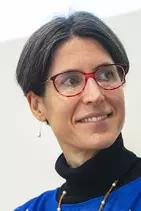Fifteen French companies, including Veolia, contributed to the Afep - Shift Project report on the use of energy-climate scenarios in their strategy. Today, investors are asking major companies about their alignment with the Paris Agreement objectives: their contribution to the low-carbon transition and their ability to adapt to the consequences of climate change. The report was released on 19 November in Brussels at the conference “Climate and Energy Scenario Analysis: Shedding Light on the "Black Box"”. Veolia demonstrated that companies' use of energy-climate scenarios enhances the resilience of their business models and value chain. And presented the Group's greenhouse gas (GHG) emission reduction commitments.
According to this new Afep - Shift Project report, energy-climate challenges require businesses to employ rational and objective methods to think about the different possible futures. These scenarios will create the necessary confidence, both internally and externally, to imagine and finance tomorrow's solutions today.
Energy-climate scenarios specific to each company
Scenario analysis is an effective way for companies to take energy and climate issues into account in their strategy. It also allows them to provide investors, rating agencies and other stakeholders with information about changes in their business model and on the measured risks they take to create new activities.

Veolia is aware of the strong impact of climate change on its customers and business models. The Group already offers a wide range of adaptation solutions for water management and air quality, and for turning waste into resources thanks to the circular economy. It has also set itself targets for limiting greenhouse gas emissions within its operational scope that have been validated by the Science Based Targets initiative. These targets are integrated into its long-term strategic plan. They are compatible with the Paris Agreement. Veolia is committed to the low-carbon transition with objectives relating to replacing coal-based heat production with less emitting energies; capturing and recovering biogas from waste storage; and purchasing less carbon-intensive electricity. The Group could also develop scenarios based on other IPCC trajectories (e.g. +3°C by 2100).
"This report suggests a step-by-step approach: write stories based on a range of IPCC scenarios, then develop more qualitative scenarios on the significant issues facing each company. These specific scenarios, which companies will design in a way that is consistent with their activities, will strengthen the confidence of all their stakeholders, including their investors, in risky low-carbon transition economic models,” concluded Alice Peyrard.
More:
Climate: a crucial emergency (Press day 2019)
Veolia’s commitments to fighting climate change
Veolia is committed to Climate
Energy and Climate Scenarios - Evaluation and Guidance - Report by the Shift Project for Afep
This study to which 15 companies have contributed is supported by l’Afep


